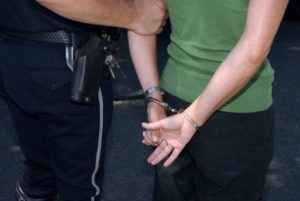The Strong Defense
You Deserve
Navigating Probable Cause in Florida: A Primer for Traffic Stops

Probable cause serves as the legal bedrock that safeguards citizens from unjust arrests and unwarranted searches, playing a pivotal role in the realm of traffic stops. Understanding the essence of probable cause and its constitutional underpinning is fundamental not only for law enforcement officers but also for every driver on the road. This article delves into the concept of probable cause, its constitutional basis, and its practical application in traffic stops, particularly in the state of Florida.
Understanding Probable Cause
Probable cause is encapsulated as a reasonable belief based on clear, articulable facts that a person has committed, or is on the verge of committing, a crime. When it comes to traffic stops in Florida, it entails that an officer possesses a valid reason to assume that a driver has breached the law. This standard is a notch below the “beyond a reasonable doubt” threshold required for a criminal conviction, yet significantly above mere suspicion.
Constitutional Grounding
The Fourth Amendment of the U.S. Constitution is the linchpin for the doctrine of probable cause. It stipulates:
“The right of the people to be secure in their persons, houses, papers, and effects, against unreasonable searches and seizures, shall not be violated, and no Warrants shall issue, but upon probable cause, supported by Oath or affirmation, and particularly describing the place to be searched, and the persons or things to be seized.”
Under this amendment, any search or seizure, including traffic stops, must satisfy the probable cause standard. The Terry v. Ohio (1968) ruling further delineated these principles, explicating that an officer could halt and question an individual with reasonable suspicion of a crime unfolding.
Probable Cause in Traffic Stops: Practical Scenarios
Moving Violations
Examples of moving violations like speeding or illegal turns are straightforward cases establishing probable cause for a traffic stop.
Equipment Violations
Equipment violations such as malfunctioning lights or expired tags also furnish officers with probable cause.
Erratic Driving Patterns
Behavior like swerving or abrupt stopping could signify intoxication or distracted driving, thus constituting probable cause.
External Information
Occasionally, probable cause is derived from external sources like an APB or citizen reports.
Incidental Observations
If during a legitimate traffic stop, an officer discerns evidence of another crime, it may establish probable cause for further actions.
Defending Against Charges: Lack of Probable Cause
Being embroiled in a criminal accusation is a grave matter. A paramount aspect your Florida criminal defense attorney will examine is the presence of “probable cause” during the actions leading to your charges. Lack of probable cause could serve as a robust defense, potentially resulting in evidence exclusion or charge dismissal.
Motion to Suppress Evidence
Filing a motion to suppress evidence obtained without probable cause is often the initial step, which could cripple the prosecution’s case.
Arrest Challenge
If arrested without probable cause, subsequent evidence could be deemed “fruit of the poisonous tree,” leading to charge dismissal.
Officer Testimony Scrutiny
Cross-examining the arresting officer during hearings could unravel the probable cause, jeopardizing the prosecution’s case.
Presenting Counter Evidence
Witness testimonies or other evidence negating the probable cause can also be deployed in your defense.
Lack of probable cause is a potent defense in criminal charges. However, the legal intricacies surrounding probable cause necessitate the counsel of an adept criminal defense attorney to adeptly navigate these issues. In Florida, being well-versed in probable cause and its implications in traffic stops can be instrumental for both citizens and law enforcement officers, promoting lawful practices and protecting individual rights.


